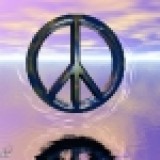Happy Persian new year
-
ddavidd
11 years agoHappy Norooze and season greeting!!
-
Hellon
11 years agoOk...what is this celebration...I have not heard of it before so...I want to know EVERYTHING about it...I love celebrations..tell me the traditions behind it..the food...the length of time it lasts and what it represents? and...have you moved to Iran?
I've always found it slightly strange that we can still buy "Persian' rugs and yet Persia is no longer on the map.... -
ddavidd
11 years agoI don't know if I could go back. I would like though for a visit.
it is more than two thousand year tradition. it belongs to the first prophet of Indo-European nation: Zarathustra. Persian people kept the tradition even after the attack of Arabs and dominant of Islam. Even in contemporary Iran after the take over of the Islamic republic, which was the second attack against the Persian traditions.
our new year starts with the first day of spring. I'll tell you more later -
ddavidd
11 years agoNorooze
-
-
A lonely soul
11 years agoNavroz is Norooz, imported to India from Persia, and celebrated by Parsi's who are migrants from the Zoroastrian people of Persia centuries ago. They came with the Moghul armies when they invaded India, when the Persian kings were expanding their empires in the Middle Ages.
About the festival:
http://en.wikipedia.org/wiki/Nowruz -
ddavidd
11 years agoActually it is more cultural than religious. I know in India and part of Russia and Afghanistan they celebrate Norooze and you are right they would use their own version of the pronunciation
-
A lonely soul
11 years agoNav (Hindi) or Now (persian) = New
Roz (Urdu & Persian) = day
As you said it is celebrated by Persian Zoro-astrians/Ismailis and like worldwide as the beginning of a New Year and traditionally marks the 1st day of Spring each year on March 21st.
More generally, it signifies a time of spiritual renewal and physical rejuvenation, as well as the spirit of gratitude for blessings and an outlook of hope and optimism towards the future. It's roots are probably religious from my understanding, probably invented by Zoroaster himself in the 2nd millenium BCE, the founder of the pre-Islamic Zoro-astrian faith.
Correction to my earlier statement- Parsi's of India were actually Zoroastrian's from Persia who escaped to Hindustan in 8th-10th century AD (ancient India, includes Pakistan & Afghanistan) to escape religious persecution by the Arab invaders, who were forcing ancient Iranians to either pay heavy taxes (Jizya) or to convert to Islam (Muslims). An unfortunate religious practice also brought to India by the Turks and Persian Mughal rulers (descendents of Arabs) when they invaded India.
http://en.wikipedia.org/wiki/Parsi -
ddavidd
11 years ago:) :)
-
Hellon
11 years agoRM..getting back to this (spent the last two days in transit :)...you say it's cultural so...what would you eat for example? Anything special?...do you do anything out of the norm to celebrate? Traditionally in Scotland we have "The Bells" this originated from the shipyards along the River Clyde and other ports who would welcome the New Year in by blowing their horns etc...we also had something called a 'first fit".. (translated = first foot) the first person to cross your door step in the new year...(we would hope for a dark haired person for luck) and this person would carry a piece of coal along with a dram (whiskey) to help celebrate the coming year. Food we would cook to celebrate was very simple...Ham ribs (the broth saved to make soup next day) with cabbage and mashed potatoes so...yeah....what are the traditions of the Persian New Year?
Just on a side note...I mentioned how we can still buy Persian rugs, although there is no longer a Persia on the maps and...today...I had Ceylon tea although that country has also now changed names...why is this? -
ddavidd
11 years agoDear Hellon I answer you very soon.
~~~~~
to those who know who they are::
If I am an Aryan man and that bothers you it is not my fault,
I am what I am.
If the fact that I am proud of my background bothers you then why are you so proud of your heritage and background??
If you think because I am Arian I have to pay for the crime of Adolf Hitler::
First then you have to pay for the crime of your ancestor.
Second, Adolf Hitler was not a true Arian he was an European Hun!! The true heritage of Sirius the king, Aryans and in that matter the Europeans is democracy and fairness
Persian version of Arianism is totally different.
The Sirius king when he captured the world of his time, he was so tolerant to the different races that he did not practice slavery. He was the preacher of equality and fairness,
He built the biggest temple for the Jews, and Jews refer to him as one of their saint, he is referred as king and prophet in the ""old testament""
He also married a Jew and because of him there is a language that was used vastly in the movie:: "the Passion Of Christ"" that language is called Aramaic.
His words of Democracy and wisdom is manifested in the united nation platforms and is printed on stones all over the free world!! -
ddavidd
11 years agoDear Hellon I have a selective mined I have to wait till the answer come
and I respect your question and love your enthusiasm. -
A lonely soul
11 years agoCeylon was actually the colonial name probably given by the Portuguese or British to an island with a very interesting Hindu mythology behind it.
Sri= venerable
Lanka= name of ancient/ mythological capital of Ravana, who was the demon king in the epic Ramayana, some of you may have read its English version.
According to the Hindu mythology, Ravana, a demon king who became invincible by worshipping and getting boons from Bramha (creator) ruled the island when he banished Kuber, the god of wealth and prosperity from the Island of the Gods. Until, Rama (one of the incarnation of Vishnu, another of the 3 creators) took birth on earth and vanquished him to bring Justice and Peace back in the hands of the Gods and the mortal humans.
Addendum: Ceilao was the name given to Sri Lanka by the Portuguese when they arrived on the island in 1505, which was transliterated into English as Ceylon. In ancient times, Sri Lanka was known by a variety of names: ancient Greek geographers called it Taprobane and Arabs referred to it as Serendib (the origin of the word "serendipity").



